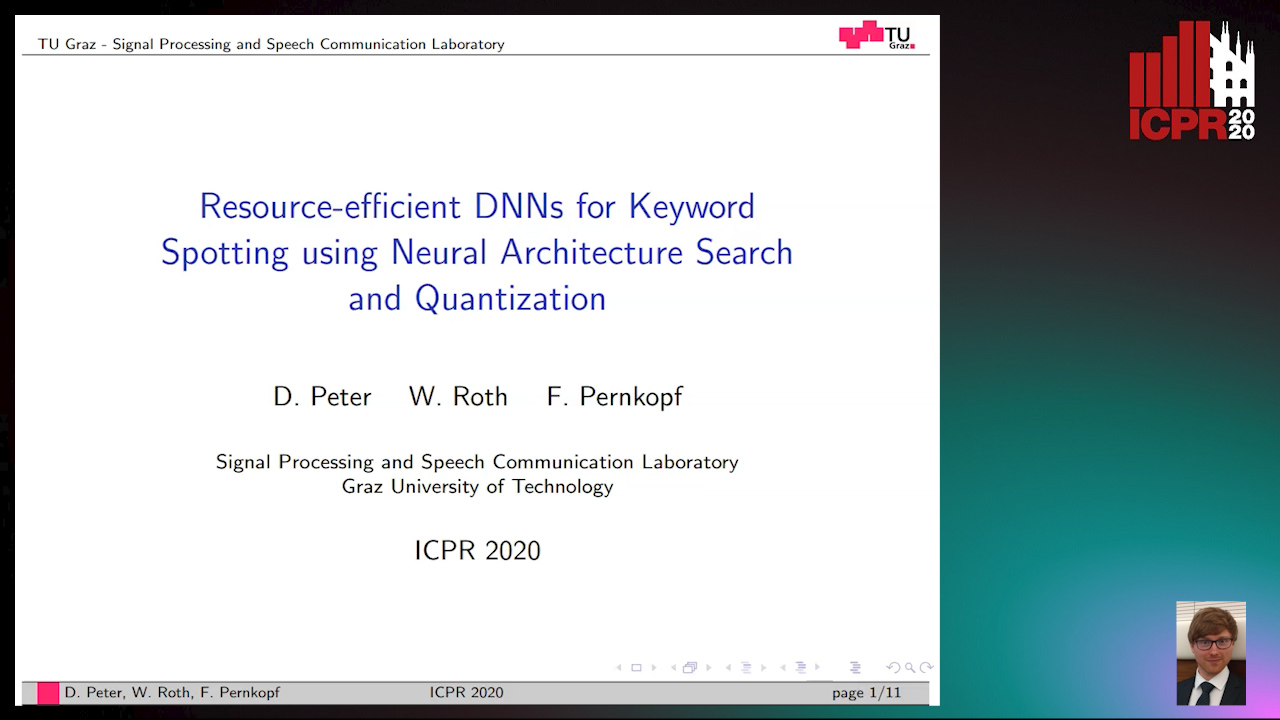Franz Pernkopf
Papers from this author
On Resource-Efficient Bayesian Network Classifiers and Deep Neural Networks
Wolfgang Roth, Günther Schindler, Holger Fröning, Franz Pernkopf

Auto-TLDR; Quantization-Aware Bayesian Network Classifiers for Small-Scale Scenarios
Abstract Slides Poster Similar
Resource-efficient DNNs for Keyword Spotting using Neural Architecture Search and Quantization
David Peter, Wolfgang Roth, Franz Pernkopf

Auto-TLDR; Neural Architecture Search for Keyword Spotting in Limited Resource Environments
Abstract Slides Poster Similar